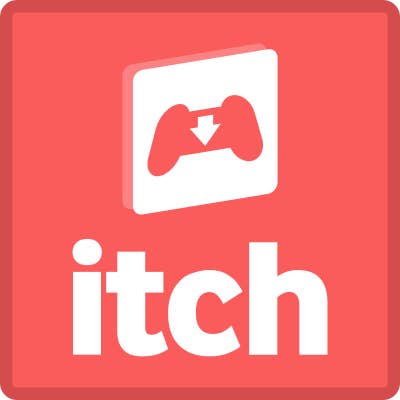YoYo Games: Which PC storefronts appeal most to indie developers?
General manager James Cox reveals exclusive insights from a survey of the Game Maker Studio community
PC gaming, unlike its console brethren, is something of the wild west when it comes to digital distribution. Where console manufacturers funnel their digital wares to a singular storefront owned by the hardware manufacturer, PC gaming offers players and developers alike a smorgasbord of choice on where to both publish and purchase games.
From Valve's eminence in the market with Steam, to Humble's charity-driven model, to new kid itch.io's setup for developers to customise their own sales pages, there are all sorts of reasons consumers will gravitate to some portals over others. So we at YoYo Games, creators of the 2D software engine GameMaker Studio (Hyper Light Drifter, Nuclear Throne, and Downwell), are curious about how indie developers see these different storefronts; what appeals to them - and gives them cause for concern - about this varied marketplace?

When asked to identify the platforms on which they prefer to publish, Steam was by far the most common response, with 72.2 per cent of those respondents picking Valve's portal. Second, however, was itch.io, which garnered an impressive 46.9 per cent. The Humble Store was in third place, with 24.6 per cent, and finally Good Old Games received a response from 22.0 per cent, while 7.2 per cent said they'd publish on Green Man Gaming.
The reasons for this are illuminating. The obvious reason many favour Steam is because of its high market share, but it's no longer the only credible option, and there are many more complex variables that have driven indie developers towards trying alternatives.
That's not to say that Steam is losing its edge, as by and large Valve's portal has a positive perception. When asked which storefront was perceived as best against a series of criteria, Steam trounced its competitors in "certification issues" and "customer service", with 46.8 per cent and 42.9 per cent respectively favouring Valve's shop, while the runner-up in these criteria garnered a significantly lower 26.2 per cent and 21.0 per cent respectively. Steam also came out ahead in "likelihood of [their games] being featured" with 37.7 per cent, while the second place choice was 29.8 per cent.
"Itch.io also ranked highest in 'ease of submission', with 49.6 per cent favouring the storefront"
However, there were some aspects where itch.io came out on top. One such category was submission fees, as itch.io offers a no cost means to submit games on its platform. Itch.io also ranked highest in "ease of submission", with 49.6 per cent favouring the storefront, with the runner-up receiving 29.8 per cent of the votes.
While Steam and itch.io received the lion's share of attention and positive feedback in our survey, the majority of participants still had concerns about getting indie games noticed on these popular platforms. In terms of providing visibility for a game once it gets accepted onto a platform, Steam received the highest ranking with an average score of 6.3 out of 10. Itch.io came in second place with 4.6, while Humble was a close third with 4.2 out of 10.
Perhaps Steam's standing here isn't that surprising, as Valve's platform received a staggering 7,672 new titles in 2017 alone. What is surprising is that none of the other stores received anything higher than a 5 out of 10 average. Clearly, discovery remains a big concern for developers in the ever growing PC gaming scene.

Another problem indie developers are running into is acquiring new players for games after they've been released. When asked how effective they thought each platform was at this, Steam received the most glowing appraisal, with our participants giving it an average score of 7.1 out of 10. Itch.io came in second with 4.7, while Humble practically tied for runner-up at at 4.5.
While getting attention is a major source of anxiety for indie game developers, the bulk of survey participants found that customer feedback was a huge benefit, with Steam and itch.io offering the most constructive criticism on these fronts. One reason Steam and itch.io received so much attention in this survey is because they both have dedicated communities who are fond of giving feedback. When asked "Which platform's users provide you with the most constructive feedback?" 43.5 per cent chose Steam, while a substantial 32.5 per cent chose itch.io. Nothing else garnered more than 6 per cent of the votes.
This level of feedback is likely attributed to the fact that, unlike a lot of PC storefronts, Steam and itch.io both offer the option to sell games while they're still in development. When asked how important such a feature is to a developer, nearly half of our participants gravitated towards these options. (For a more detailed breakdown, 30.5 per cent said they use these options sometimes, 11 per cent said they "mostly" use it, and 7.8 per cent said they always take the option to sell titles still in development. Conversely, 41.6 per cent said they never use early access options.)
"Steam and itch.io receive the most attention, but that could be because they're so different from one another"
The only downside to this much attention is that occasionally crowds opt for an unruly mob mentality and "review bomb" a game - pile on a flurry of negative reviews in order to bring a particular title down a peg or two. This practice only seemed to concern developers about Steam, however, and even then it was seen as a relatively middling worry. To its credit, Valve has released statements on the issue, taking such tactics as releasing histogram charts of a game's reception and offering new algorithms to offer greater weight towards more helpful user reviews.
Steam's other potential setback is its forced use of DRM, which some have taken issue with, but of the developers we surveyed these measures were largely seen as a positive, with 34.4 per cent believing it protected their games from piracy. That said, a substantial 31.2 per cent claimed that they specifically seek out stores that don't require this when purchasing a game.
Perhaps the most surprising takeaway from this survey is that even though developers are very fond of releasing their games on itch.io, very few use it more than Steam as consumers. When asked which PC gaming platform they buy games from the most, less than 1 per cent chose itch.io, while Steam predictably came in the lead with 81 per cent. This massive difference in popularity makes sense, as Steam has been around for much longer and has built up a far more extensive library. Still, it's interesting how much of a monopoly Valve still has over the marketplace given that developers have such positive attitudes about other PC storefronts.

Overall, the devs we surveyed found the most popular platforms to be pretty evenly split when it came to their general "suitability for indie games". Steam rated highest by a fraction of a hair with 5.43 out of 10, while itch.io received a 5.39, and Humble Store scored a 4.61. In other words, indie games are going to struggle to get noticed anywhere in the current climate, even in the most well liked digital storefronts.
So, what did we learn? One takeaway is that in terms of indie developer accessibility Steam and itch.io are most in vogue. Itch.io in particular has a very favourable perception within GameMaker's developer community, most likely due to its ease of submission. There are no fees tied to releasing a game and developers are free to launch titles that are still being developed.
Steam offers a similar service with Early Access, and it's a more popular platform in general, but releasing a game on Valve's storefront requires a small application fee ($100 per title), and there's an outside chance of "review bombing" should a crowd get too rowdy. In the end, itch.io may not get quite the same spotlight as Steam, but it's a fine way for fledgling developers to test the waters of a title or release less polished prototypes and student games.
Ultimately, these various platforms offer something very different to indie developers. Steam and itch.io receive the most attention, but that could be because they're so different from one another. Valve's platform draws in those ready to dive into the fiercely competitive commercial marketplace, while itch.io offers a low stakes way to receive valuable feedback from a largely friendly community. There is plenty of value in both, and the potential for symbiosis means the two may not be in competition as much as one might think.
YoYo Games obtained the views of over 600 developers as the basis for this article.